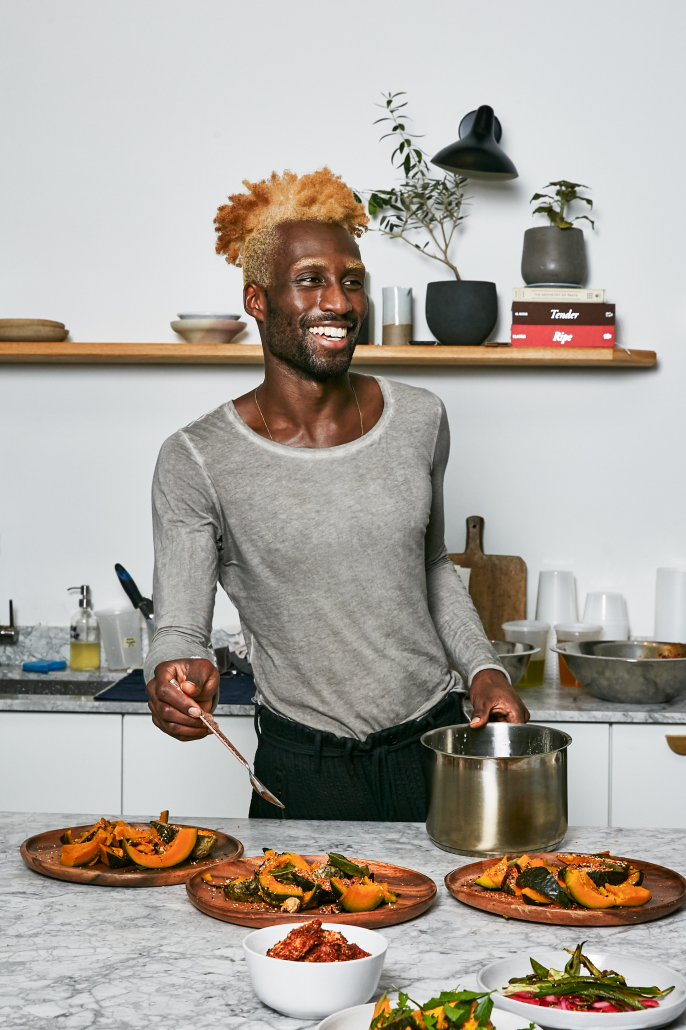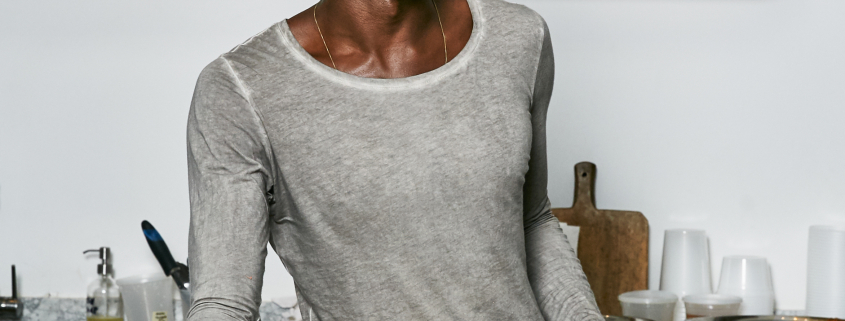Jamaican American chef and artist celebrates heritage through food and art

Food embodies a special meaning for each person. For DeVonn Francis, food is an essential part of his Caribbean heritage, and Yardy World was his creative studio where he used culinary arts to investigate his own role in Caribbean culture and for others to celebrate their identities.
During the “Activism Through Food and Art” virtual event last Thursday, the first-generation Jamaican American chef and artist talked about how his Caribbean heritage inspired him to add a unique taste to personal cuisines and a special perspective on the photo series he made.
Nia Lee, an Annenberg Civic Media Fellow and founder of Stormé Supper Club, which centers on queer Black women and nonbinary people, moderated the event. Jennifer Francis, the DeVonn’s mother and one of the main collaborators, also joined the event.
DeVonn first came up with the idea of Yardy World in 2017. Just a year before that, he was trying to find his identity in society while promoting his heritage. One day, he found some family photos of his parents after they immigrated to the United States. While looking at them, DeVonn felt an energy that made him feel good. In one of his Instagram posts, DeVonn said that the photos helped him realize his parents are his heroes in both Jamaican food and culture. This is also how he came up with the name of his company, as Yardy is a variation of “Yardie,” which refers to a person of Jamaican origin or descent.
“[Yardy World] came from not just my love for Caribbean cuisine or culture at large, but really me trying to find my place as a queer person who was first generation, living in New York and who went to art school and who wasn’t a chef, who didn’t go to cooking school, and figuring out how my voice and identity and passion fit into that history,” DeVonn said.
DeVonn said he believes what differentiates his Caribbean cuisines from traditional ones is the space he lives in, the experience and culture he has and the stories he heard while growing up. For instance, Francis designs his recipes through drawings and diagrams. Before going to the kitchen, Francis would use logic maps to work out how he wanted to make the cuisines.
“Essentially, thinking about things as components, right? What are the things that make you keep going back to food,” DeVonn said. “My goal was always like, ‘What are the things about Jamaican and Caribbean cuisine that makes me want to come back, that make people want to come back?’ And then just expanding on that is sort of my first point of the process.”
DeVonn also said he believes that the current commodification of food drives him away from opening a restaurant — instead, he wants food to be worthy of receiving.
“[Food is] worth the cycle rather than something that is expected to be there for you,” DeVonn said.
Besides cooking, DeVonn also introduced his photography. His experiences in photography at art school equipped him to use projects to advocate for his Caribbean heritage. In a set of photos taken in 2019, DeVonn featured his parents and siblings posing in front of vibrant colors and different types of food posited on the table —s a recurring motif in his photos.
“[The dinner table] is not just like ‘This is where you eat.’ But this is where you are basically putting on a show,” DeVonn said. “You can live as whoever you kind of want at the dinner table, you can bring your highest sense of self to the dinner table.”
DeVonn said he believed the photos serve as a documentation of Jamaican history and embody profound cultural meanings.
“This collection of photos is really a project of archiving not only the history… but also empowering and encouraging myself and the people who work for Yardy World and, quite honestly my family members too, to realize that we’re not just replicating history but are also living legacies of a history too. We are a continuation of history too.” DeVonn said.
DeVonn also shared advice to audience members wishing to highlight their cultural heritage and history through food.
“The first thing that I did before I even started my company is, I found chefs and I found mentors,” he said. “I found people who I really looked up to and I reached out to them and I spent time with them.”
When it comes to the future development of Yardy World, Jennifer said she has high hopes for her son and her daughter, who also placed effort in promoting Jamaican culture and heritage by staging for DeVonn’s photoshoots.
“They’re doing a good job, they’re doing a great job,” she said. “They’ve just amazed me so much with all that they’ve accomplished. So I’m just excited to see what happens … five years from now.”
Although he enjoys his career as a chef, DeVonn looks to teach in the future.
“I’ve always wanted to have a cooking school or some sort of teaching lab that was actually based in the Caribbean, something where people can go in and learn and not just about food,” Francis said. “We’re really thinking about food as a source of independence.”
The event lasted for 90 minutes and was both inspiring and elevating to the audience.
“I want to thank you both for joining us today,” Lee said. “This has been a really powerful and informative talk.”

